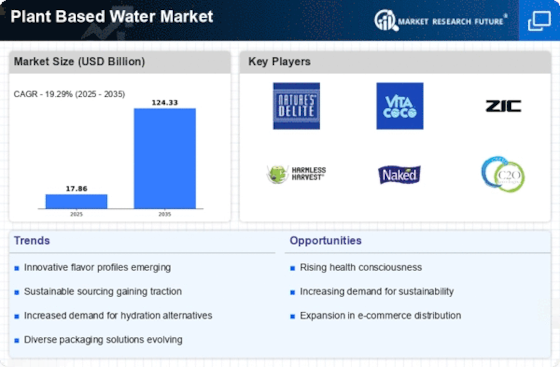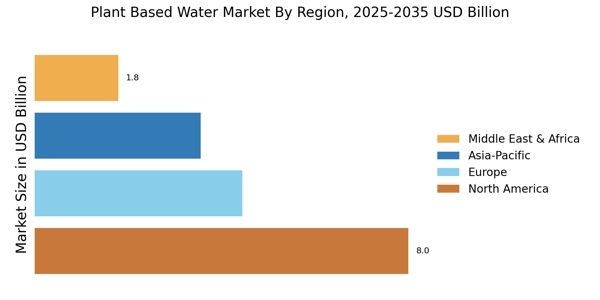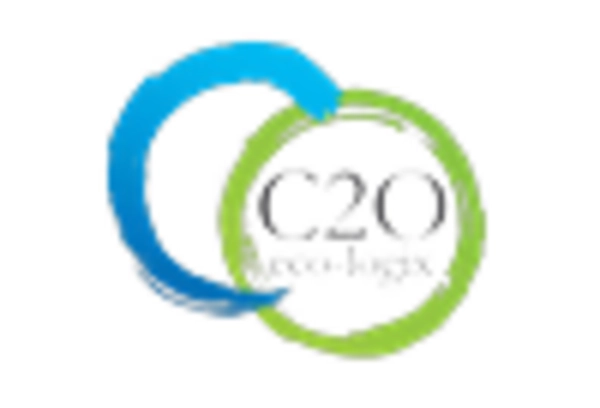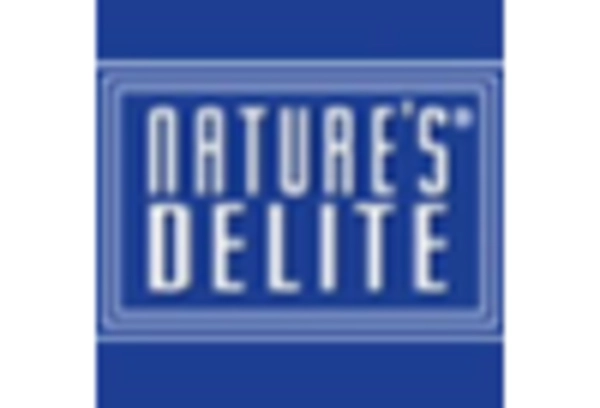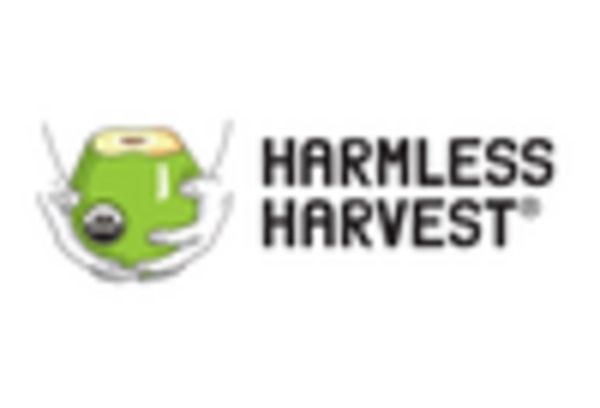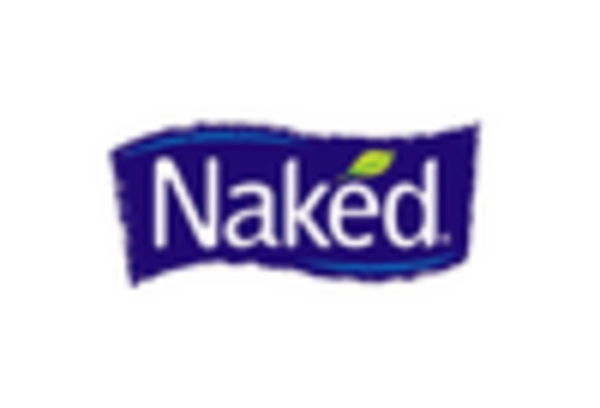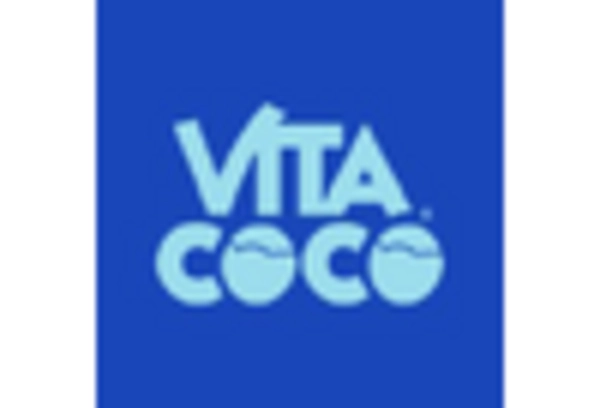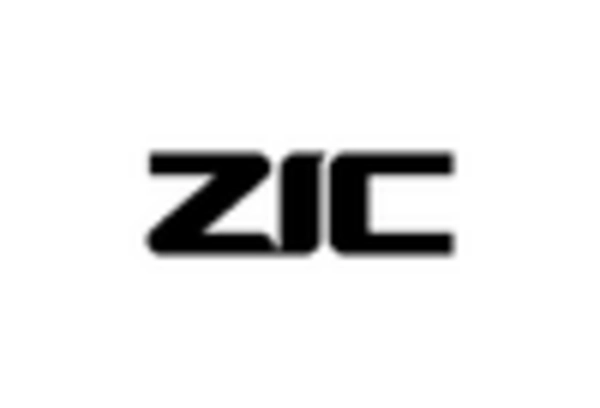North America : Market Leader in Plant-Based Water
North America is the largest market for plant-based water, holding approximately 45% of the global share. The growth is driven by increasing health consciousness among consumers, rising demand for natural beverages, and innovative marketing strategies by key players. Regulatory support for health claims on packaging further boosts market expansion. The U.S. leads this region, followed by Canada, which contributes around 15% to the market share.
The competitive landscape is characterized by major players such as Vita Coco, Zico, and Harmless Harvest, which dominate the coconut water segment. The presence of these brands, along with a growing number of startups, enhances market dynamics. Retail channels, including supermarkets and online platforms, are increasingly stocking plant-based water products, catering to the rising consumer demand for healthier alternatives.
Europe : Emerging Market for Wellness Drinks
Europe is witnessing a significant rise in the plant-based water market, currently holding about 25% of the global share. The growth is fueled by increasing consumer awareness regarding health benefits, along with a shift towards sustainable and organic products. Countries like Germany and the UK are leading this trend, with regulatory frameworks supporting health and wellness initiatives, which further catalyze market growth.
Germany is the largest market in Europe, followed closely by the UK, which is rapidly adopting plant-based beverages. The competitive landscape features both established brands and new entrants, focusing on innovation and sustainability. Key players are expanding their product lines to include flavored and functional plant-based waters, appealing to diverse consumer preferences. The market is also supported by a robust distribution network, including health food stores and e-commerce platforms.
Asia-Pacific : Rapid Growth in Emerging Markets
Asia-Pacific is an emerging powerhouse in the plant-based water market, currently holding around 20% of the global share. The region's growth is driven by rising disposable incomes, urbanization, and a growing trend towards health and wellness. Countries like India and Australia are at the forefront, with increasing consumer demand for natural and organic products, supported by favorable government policies promoting health and nutrition.
India is witnessing a surge in coconut water consumption, while Australia is seeing a rise in various plant-based water options. The competitive landscape is becoming increasingly dynamic, with both local and international brands vying for market share. Key players are focusing on product innovation and marketing strategies tailored to local tastes, enhancing their presence in this rapidly growing market. Distribution channels are expanding, with a notable increase in online sales and health-focused retail outlets.
Middle East and Africa : Untapped Potential in Beverage Sector
The Middle East and Africa represent a resource-rich frontier for the plant-based water market, currently holding about 10% of the global share. The growth is driven by increasing health awareness, a shift towards natural beverages, and rising disposable incomes. Countries like South Africa and the UAE are leading the charge, with regulatory frameworks beginning to support health-focused products, which is expected to catalyze market growth in the coming years.
South Africa is the largest market in this region, with a growing interest in coconut water and other plant-based options. The competitive landscape is characterized by a mix of local and international brands, with key players focusing on product diversification and marketing strategies that resonate with health-conscious consumers. Distribution channels are evolving, with an increase in health food stores and online platforms catering to the growing demand for plant-based beverages.


